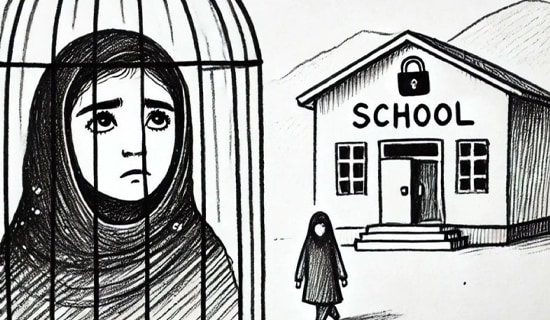Jihadists have lately been complaining about what they perceive as a double standard in the response by Muslim scholars to the jihad in Gaza versus their response to jihad activity elsewhere.
They point out that many scholars express unqualified support for the jihad in Palestine – especially for Hamas' resistance efforts in Gaza – but at the same time, these very same scholars condemn the jihad of Al-Qaeda, and even issue fatwas against it.
This complaint is set out in a booklet recently posted on Islamist forums, titled "Buzugh Al-Fajr Bil-Mahajjat Al-'Ashr" (The Break of Dawn: 10 Arguments). The author, who calls himself "Abu Hazam Al-Salafi," presents 10 arguments explaining and demonstrating this double standard, which, he emphasizes, is applied especially by the Saudi clerics and scholars.
Following is an excerpt from the introduction to the booklet, and a summary of the booklet's main arguments:
"I have noticed that many people… [hold] contradictory views, and [apply] a double standard as the whim takes them. They denounce an action when it is carried out by certain people, and praise it when it is carried out by others... They set out a principle and establish a rule that leads them to condemn and denounce an act committed by the men of Al-Qaeda, [but] afterwards they do not hesitate to disregard that principle and to demolish that foundation when the [same] act is committed by the Hamas movement! Some of them made appropriate statements when Gaza was shelled, and this is a good and desirable thing. But I wish I knew why the exact opposite occurs when it comes to issues other than Gaza. Where were these statements and fatwas when the shelling occurred in Afghanistan, Iraq and elsewhere?"
Abu Hazam's 10 arguments can be paraphrased as follows:
1. In the wake of the September 11thattacks, Muslim scholars issued fatwas forbidding attacks on the U.S., on the grounds that such acts might prompt the U.S. to invade Muslim countries. Hamas' rocket attacks on Israel, on the other hand, were not met with a similar outcry and did not prompt fatwas forbidding attacks on Israel, despite the latter's threat to invade Gaza.
2. The opponents of the Salafi-jihadis in Saudi Arabia frown on the latter's struggle against the authorities, arguing that they are no match for the government in power. Yet the same people support Hamas' armed struggle, despite Israel's obvious military superiority.
3. One of the legal arguments brought against Al-Qaeda is that the leaders (wullat al-amr) of the Arab countries have not given their citizens permission to wage jihad in other lands. Yet the same argument is not applied to those who go to wage jihad in Palestine, even though some Arab rulers – such as Egyptian President Hosni Mubarak, Palestinian Authority President Mahmoud 'Abbas and others – have forbidden it.
4. Saudi scholars oppose jihad against the U.S. on the grounds that the Arab leaders have a pact ('ahd) with it. However, they do not apply this principle to the resistance against Israel, even though this country too has a sort of pact with the Arab leaders, because Israel and the Arab states are all members of the U.N.
5. Many books and articles criminalize Al-Qaeda's operations because they cause the death of innocent women, children, and elderly people. Yet not one book or article criminalizes, or even criticizes, Hamas's actions, which cause the death of many innocent civilians from among the People of the Book [i.e. Jews and Christians].
6. The media and the public call all those killed in Palestine "martyrs," regardless of whether or not they were righteous Muslims. Even communists and secularists are graced with this title. At the same time, this term is not applied to the heroic Al-Qaeda fighters who are killed in action.
7. Salafi-Jihadi scholars argue that those who assist the Americans are "apostates," and are often rebuked for this by scholars from other streams of Islam. However, during the Gaza war, a group of scholars issued a statement stipulating that anyone who assists the Jews against the Muslims is an apostate. Why, then, was this statement not condemned?
8. The religious authorities in Saudi Arabia have forbidden mosque imams to hold public prayers for the Muslims and the mujahideen in Iraq and Afghanistan. Yet almost all mosques in the Saudi kingdom held prayers for the people of Gaza. Abu Hazam asks: "Is the blood of our brothers in Gaza more precious than that of our brothers in Afghanistan and Iraq?"
9. The so-called Islamic State of Iraq (ISI) has been the target of much ridicule and criticism, and fatwas have been issued against it. Yet the scholars who came out against the ISI refrain from criticizing Hamas. This, despite the fact that Hamas, which has total control over Gaza, has not declared an Islamic emirate and has not enforced shari'a in its jurisdiction, but instead has been ruling according to laws "other than those that Allah revealed," i.e., according to democratic and secular principles.
10. Scholars refrain from rebuking Hamas for its failure to instate Islamic law in Gaza, and for killing dozens of Salafi-jihadis there, on the grounds that the Palestinians should not be criticized when in a state of war. Yet when Iraq and Afghanistan were invaded and shelled, many scholars saw fit to condemn the mujahideen's actions, even though the Muslim nation was in a state of war.




